- 1 Mar 2019
- 3 mins read
- Posted in
AI and automation technology is fast becoming embedded in forward thinking companies and is more advanced than ever before. Quite simply, technology is reshaping the way that we work, do business and play. And it’s also shaping how organisations utilise talent too. As consultancy firm PWC highlights in its research ‘Workforce of the future – The competing forces shaping 2030’, “Automation and ‘thinking machines’ are replacing human tasks and jobs, and changing the skills that organisations are looking for in their people.”
Of course, it depends on the industry – with some being affected more than others at present. Think Amazon and Tesla, whose factories and warehouses are underpinned by robotics, artificial intelligence and machine learning algorithms. The number of people required to build a car or pick and pack in a warehouse has decreased dramatically due to the adoption and implementation of smart technology from these industry leaders.
This, however, is merely the tip of the iceberg. Technology is replacing and disrupting many other roles such as transcription services, engineering, data mining and programming. It’s evidently not just manual labour that’s being affected. As Accenture Strategy notes, “Consider how an aerospace designer today works labour intensively to create stronger, lighter airplane components using manual calculations. Through AI-assisted "generative design,” which mimics nature’s evolutionary approach to design, the same specialist can cycle through countless options, test configurations and nudge intelligent software to learn and improve with each iteration.”
Redefining work
This calls for organisations to think about how they define ‘work’. It means taking a look at the business strategy. What is it that the business wants to achieve? How will it achieve that? And who will help it achieve those goals? There needs to be a fundamental shift in what work will be carried out by employees, freelancers and contractors and what will be automated and carried out by artificial intelligence (AI).
As Mike J. Walker, former research vice president at Gartner, points out, “Business and technology leaders will continue to face rapidly accelerating technology innovation that will profoundly impact the way they engage with their workforce, collaborate with their partners, and create products and services for their customers.”
Technology is already automating administrative work and repetitive mundane tasks and it’s moving into the cognitive work space too. For most organisations this will shape what work actually looks like. Much of it will be project-based. Predefined work over a specific timeframe that is geared to help the business achieve a certain goal, and which blurs the boundary of a human and AI workforce.
Flexible talent base
This will mean that many current skills will be displaced – but many new ones will be required. Employees will either need to be re-skilled or new skill sets brought into the business. As the CIPD points out, “The world of work is changing fast and technology is changing even faster. Research suggests that in the next 20 years at least 35% of the current jobs in the UK are at risk of computerisation or automation.”
The increase in project-based work, however, does open the doors for businesses to bring in teams of freelancers or contractors to carry out projects, working alongside employee teams and the AI and automation tools that the business has in place. This provides a more fluid workforce that is able to respond to business demands and flex with the needs of the projects at hand. These teams can be more quickly assembled than hiring employees and can be disbanded on project completion.
Engaging talent
This means businesses are going to need to start engaging with a wider talent base than they do now. What skills are going to be required? When and who is best placed to carry out the work? With more than 50% of the US workforce likely to be freelance in the coming years according to Morgan Stanley - a figure which is likely to be reflected in other parts of the West - organisations would be wise to start building those relationship now.
The problem is that businesses are not ready for this shift away from a full-time staff base towards a mix of employees, freelancers and contractors, never mind introducing AI into the mix. Many still don’t have Freelancer Management Systems (FMS) in place to deal efficiently with what will be their growing army of flexible workers – particularly when dealing with hundreds of globally dispersed talent.
FMSs today, such as TalentDesk.io, are already helping businesses to both find and manage the talent they require. This will only become more enhanced as AI becomes more ingrained in those platforms, speeding up the process further as it ‘learns’ about the needs of a specific business to refine its ability to find the right talent for the project at hand.
Are you ready?
The main question is, are you ready for the change that is already taking place? What discussions have you had with your own workforce? What moves have you made to engage with freelancers and contractors on a more serious level? Do you know how technology and your fluid workforce will work side-by-side? Having a plan in place is a must.
Whilst AI may feel like it’s some way off, it’s nearer than many think. That means the conversations need to start now about how AI and automation will impact your business, how it will reshape the work that you do, and who will be best placed to deliver on your business strategy and goals.

Stefani Thrasyvoulou
Tags
Speak to us to find out how we can help you pay your contractors more efficiently
Related articles
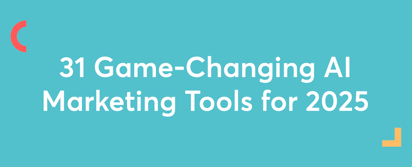
31 Game-Changing AI Marketing Tools for 2025
Discover 31 game-changing AI marketing tools – from automation to personalization, these tools will revolutionize your campaigns and boost efficiency.
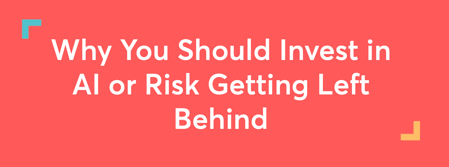
Why Businesses Should Invest in AI or Risk Getting Left Behind
Discover why investing in AI is essential. Explore the benefits of automation, decision-making, and staying competitive in an AI-driven future.
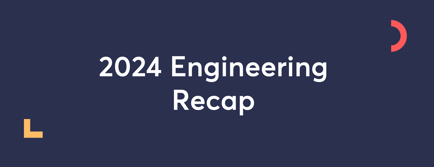
2024 Engineering Recap
See how we enhanced features and added automation in 2024 to improve TalentDesk user experience. Here's a full recap and a look ahead to 2025.
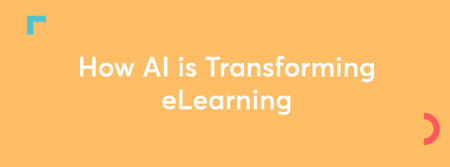
How AI is Transforming eLearning
See how AI is transforming eLearning with personalized experiences, content, and predictive analytics, enhancing education for students and teachers alike.
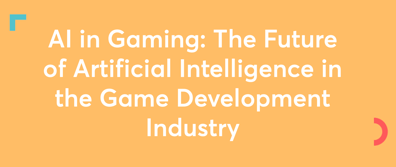
AI in Gaming: The Future of Artificial Intelligence in Game Development
The ultimate guide to AI in the gaming development industry. Learn how Artificial Intelligence is revolutionizing NPCs, game design, and player experiences.
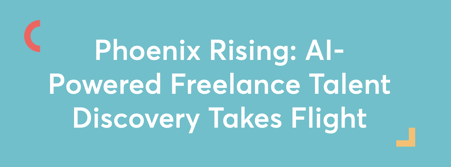
Phoenix Rising: AI-Powered Freelance Talent Discovery Takes Flight
Discover Phoenix: the AI-powered assistant revolutionizing freelance talent discovery. Connect faster, smarter, and more securely with top freelancers.
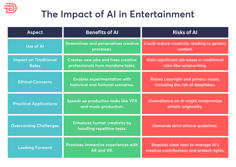
Revolution or Disruption? The impact of AI in Entertainment & Media
Revolution or disruption? Our comprehensive article explores the risks & benefits of AI in entertainment & media. Read key industry insights and opinions.
Why AI Can't Replace Freelancers and Take Over Jobs
Why AI Can't Replace Freelancers and Take Over Jobs
Artificial intelligence tools like Chat GPT have people thinking their jobs are over, but AI can't replace human creativity & originality of a copywriter.
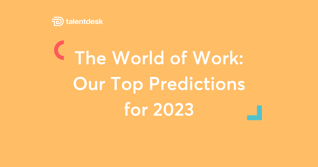
The World of Work: Our Top Predictions for 2023
As we enter the new year, we wanted to share our predictions for 2023 to help businesses develop better strategies in the coming year.
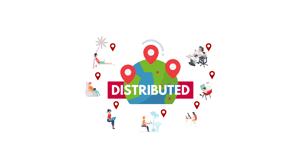
What is a Distributed Team and how do you manage them?
Managing a distributed team can be a very complex task. The suite of distributed team management tools from TalentDesk can make this much easier!
